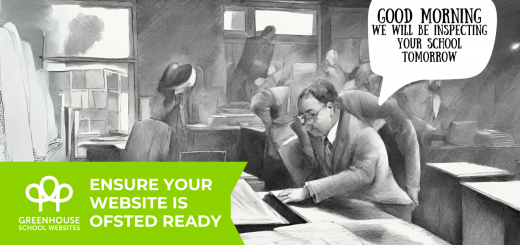The New Ofsted Inspection Framework – is it looking very different in practice?

The New Ofsted Inspection Framework has been in place now for nearly half of an academic year.
What impact is it having and how have inspections changed?
The new Ofsted inspection framework caused quite a stir all the way through from the proposal phase. Two clear strands were discussed regularly over on “edutwitter”:
Firstly the fact that Ofsted said they would no longer even consider any internal data from the school in any format. This means that they will focus on the statutory results information from SATs, GCSEs etc, rather than looking at graphs schools might make from their own interpretation of “life after levels” type assessment. As such data has no consistency from school to school I think Ofsted had realised this was taking a lot of time and didn’t help them to see a comprehensive view of the school. Members of SLT also found it difficult often to separate the platform they choose to use, from the curriculum they choose to use, from the data presented and what it means.
Secondly, the renewed focus on curriculum would mean Ofsted doing “Deep Dives” into subjects during an inspection. These would include looking at the full broad and balanced curriculum offered by the school. This is a bit of a departure from previous inspections where mostly it would only be aths, and English which were looked at in great detail. Now the inspections might delve into history, PE or an Early Years focus to look at the fuller curriculum. Results are still supposed to matter, of course, in the core subjects but it seems that Ofsted have been convinced that some schools are getting higher grades by shunning the wider curriculum offering – all the way through to reduced options at GCSE level. They have also taken an interest in the opportunities offered at schools who are reducing Key Stage 3 to a two-year programme in order to improve GCSE grades.
So how have schools found the experience so far?
Many teachers on Twitter and Facebook groups are reporting that the Deep Dives are pretty intense. Those who have had plenty of subject management time are managing with these and feeling confident that their comments were noted and they were able to have good discussions and “show off” what they had done. But it seems to have highlighted a gap for those who are not given regular time out of class to manage their subject fully, and especially for those in smaller schools who may be managing multiple subjects each as well as teaching across year groups in small classes.
Although the word “intense” has been used multiple times on Twitter and in articles such as this one from the TES, teachers have generally reported that they felt listened to and the conversations felt more well rounded than simply being observed with very little opportunity to talk with inspectors.
Inspectors are also gathering information from pupils and quick book looks. Many teachers have said they liked that pupils are being talked to rather than inspectors looking at data which feels more detached from the classroom reality. However there has also been criticism of this method as students may not, as with teachers, perform on the spot under this scrutiny well and so this can skew a school’s outcome if the inspectors hear things they do not deem to be up to standard. This article in The Guardian contains some negative outcomes which have caused quite a stir and whilst many senior school leaders are concerned that students’ views are being used against the school’s judgement, others have mentioned that this is exactly what Ofsted intended – i.e. to discover where a school has sidelined wider curriculum subjects in order to focus just on results.
Ultimately there is always the same old problem in schools at the moment and that is one of funding. Schools in areas with historically low test results obviously want to raise those to give students a better chance going into secondary school or off to university. But is that causing a drop in the wider curriculum offering and how will this impact these students further down the line? Yet also where will the funds come to support schools to deliver everything? Teaching Assistants are being made redundant in many schools, as well as teachers in some cases, due to a lack of funds. The government has now admitted that funding per pupil has indeed dropped in recent years (no surprise to anyone working in a school) but the rising bar of expectations shows no sign of slowing down.
Head Teachers who do want to give subject leaders more time out of class simply do not have the time or funds to do this. Ofsted have said that smaller schools can explain their situation, yet lots of big schools will have a similar crisis of funding.
Ofsted have been subjected to criticism that they are also stepping too far into advising schools on teaching methods that should be preferred. Is the new Ofsted inspection framework in danger of pushing that narrative further?
As a parent I can see lots of good in Ofsted focusing on a broader curriculum, but the teacher side of me wants to knock on the door of the DfE and demand more funding before an exodus from the profession ensues.
Have you had a recent Ofsted inspection? What are your thoughts?
Download a copy of our free Ofsted & Statutory School Website Requirements.













